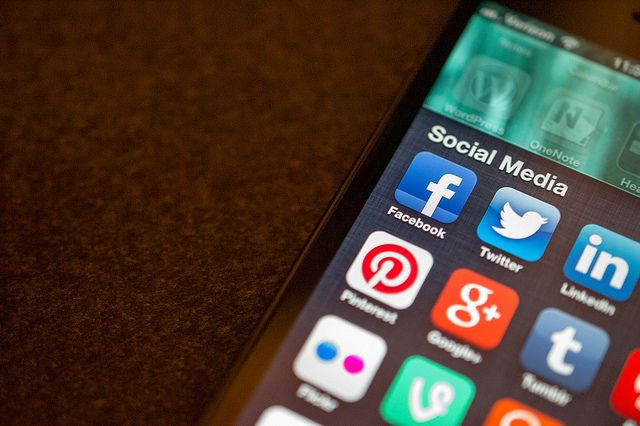‘Vulnerable Narcissists’ Feel Safe Online, May Have Increased Risk Of Social Media Addiction

It’s no surprise that researchers have recently found that the more you post on social media about yourself, the more likely you are to exhibit narcissistic qualities. But not all narcissists are the same: It turns out that frequent social networking online may be a feature of a special kind of narcissist, according to a new study. The study, published in Cyberpsychology, Behavior, and Social Networking, found that people known as “vulnerable narcissists” were the most likely to turn to social media to stroke their ego, as it was a safer bet than attracting attention in more direct ways.
To examine the use of social networking sites among narcissists, the researchers compared three different groups: grandiose narcissists, vulnerable narcissists, and non-narcissists. Grandiose narcissists tend to be exhibitionists with high levels of arrogance, dominance, and aggression — and vulnerable ones tend to be more covert and hypersensitive, with an insecure sense of grandiosity. Social media sites like Facebook or Instagram offer platforms that people can hide their bad qualities behind, and mainly focus on curating a perfect image of themselves to collect followers and likes.
“Whereas arrogance and displays of dominance are peculiar to grandiose narcissism, both the forms are characterized by a sense of entitlement, grandiose fantasies, and a tendency to promote an image of perfection while pursuing the admiration of others,” the authors write. “For this reason, previous research has often hypothesized that social networking sites represent an ideal environment for achieving narcissistic goals because they provide greater control over self-presentation and an opportunity to reach a wider audience.”
In the study, the researchers had 535 students complete several tests and surveys, including a 16-item Narcissistic Personality Inventory, the Hypersensitive Narcissism Scale, and the Generalized Problematic Internet Use Scale-2. They found that vulnerable narcissists were the ones to score highest on all of the scales, as well as have a greater association with frequent social networking use.
“Vulnerable narcissists reported significant higher levels on all [scales] and total scores than non-narcissists and a stronger preference for online social interactions and higher overall levels of problematic use of [social networking sites] than grandiose narcissists,” the researchers write. “Conversely, no significant differences were found between grandiose narcissists and non-narcissists. This study suggests that vulnerable narcissism may contribute more to problematic use of [social networking sites] than grandiose narcissism.”
According to this TED video, narcissism as a personality trait seems to be more common in the United States than ever before, having risen since the 1970s. And while there’s no evidence yet that social media causes narcissism, it’s clear that it can be used as an easy platform for narcissists to gain the attention they crave. But that may also mean that these narcissists are more likely to develop Facebook or Twitter addictions, which could go hand-in-hand with other mental illnesses like depression or anxiety.
“Since online interactions tend to have an indirect effect on an individual’s social self-esteem, it is important to assess carefully for comorbid depression in those presenting with generalized problematic Internet use,” said Brenda Widerhold of Interactive Media Institute in San Diego in a press release.
Source: Silvia C, Giulia F, Laura R. Grandiose and Vulnerable Narcissists: Who Is at Higher Risk for Social Networking Addiction? Cyberpsychology, Behavior, and Social Networking, 2016.
Published by Medicaldaily.com



























